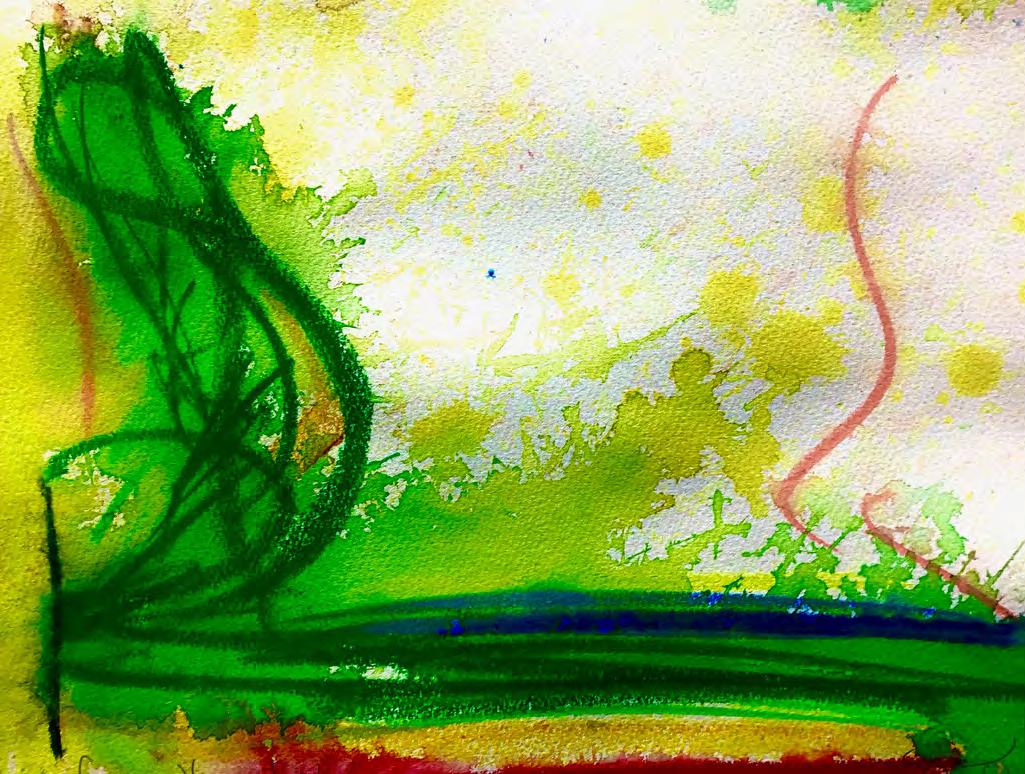Die Winterreise: Schubert’s Lockdown Edward Beswick (C1 L6) Warning: if lockdown has made you feel bleak, isolated and depressed, this may not be the best time to encounter this cycle of songs, for it is unlikely to cheer you; if, on the other hand, you are looking for something to match your mood, this extraordinary series of songs may be just the thing. Winterreise (Winter Journey) is a cycle of 24 songs written for voice and piano and composed by Franz Schubert in 1827. It is based on poetry written by Wilhelm Muller (1794–1827). Schubert had long been ill with syphilis, and Winterreise was completed shortly before his death a year after, aged just 31. The lyrics tell the story of a solitary traveller who, rejected by his beloved, leaves the house where he has been staying with her family, and heads out into the snow and darkness on a journey to rid himself of his lost love. He wanders from the village into the empty countryside on a journey of despair and desperation, with much internal reflection and very little hope to lighten the way. The traveller questions his identity, his being and the meaning of life. His tears turn to ice; he is watched from above by a carrion crow, his only companion; and his dreams of spring are dashed when he awakes to the cold and dark with ravens shrieking. At the end, in Der Leiermann (The HurdyGurdy Man) he observes a beggar musician in the street playing the hurdy-gurdy, unrewarded and ignored – even the dogs growl around him. There is no happy ending here. Schubert invited his close circle of friends to hear the cycle for the first time, an occasion recalled by his friend Joseph von Spaun: ‘One day he said to me, “Come over to Schober’s today and I will sing you a cycle of horrifying songs. I am anxious to know what you will say about them. They have cost me more effort than any of my other songs”. So he sang the entire Winterreise through to us in a voice of emotion. We were utterly dumbfounded by the mournful, gloomy tone… To this Schubert replied: “I like these songs more than all the rest, and you will come to like them as well”. Winterreise has become one of the most performed song cycles and seen as one of the greatest accomplishments and challenges of Lieder performance. The full song cycle lasts a demanding 70 minutes or thereabouts. The original was written for the tenor voice, but it has been performed successfully by singers of all vocal range. The relationship between singer and pianist is finely balanced, and interpretation of the songs relies on a closely understood relationship between the two performers. Some of the many recorded performances include those by Benjamin Britten and Peter Pears, Dietrich Fischer-Dieskau and Hermann Reuter and Peter Schreier with Sviatoslav Richter. More recently, the tenor Ian Bostridge has recorded several performances with different pianists and has written a book Anatomy of an Obsession describing his response to and interpretation of the work over many years. One performance I listened to was Roderick Williams and Christopher Glynn which, unusually, is sung in English rather than the original German. For a first-time listener, (and not fluent in German) it helped me understand the meaning of the text more immediately (rather than follow a translation at the same time), and to listen to the music and story unfold. And, although the mood is of despair and desolation, Schubert’s ability to draw out the detail of light and darkness through shifts in the use of major and minor, variety in texture in the balance of voice and piano, and shifts in pace and rhythm make this a song cycle which is never dull. It is demanding and intense. There is much that we can take from Die Winterreise, in relation to our own situation. Many of us have experienced harsh realities and restrictions like never before, losing loved ones and loved freedoms in ways both literal and metaphorical. This collection embodies many of the bleak moments that have been felt over the past year. Though the future seems uncertain, surely we may yet hope that there is more to come than the helplessness at which Schubert’s Winter Journey concludes. As ends the final song Der Leiermann (The Hurdy-Gurdy Man): I must journey onwards Will you come along? Play your broken music To my broken song. 120
In Time of Lockdown: Reflections on Locks, Lockdown, Isolation

Turn static files into dynamic content formats.
Create a flipbookArticles inside
Issuu converts static files into: digital portfolios, online yearbooks, online catalogs, digital photo albums and more. Sign up and create your flipbook.





































